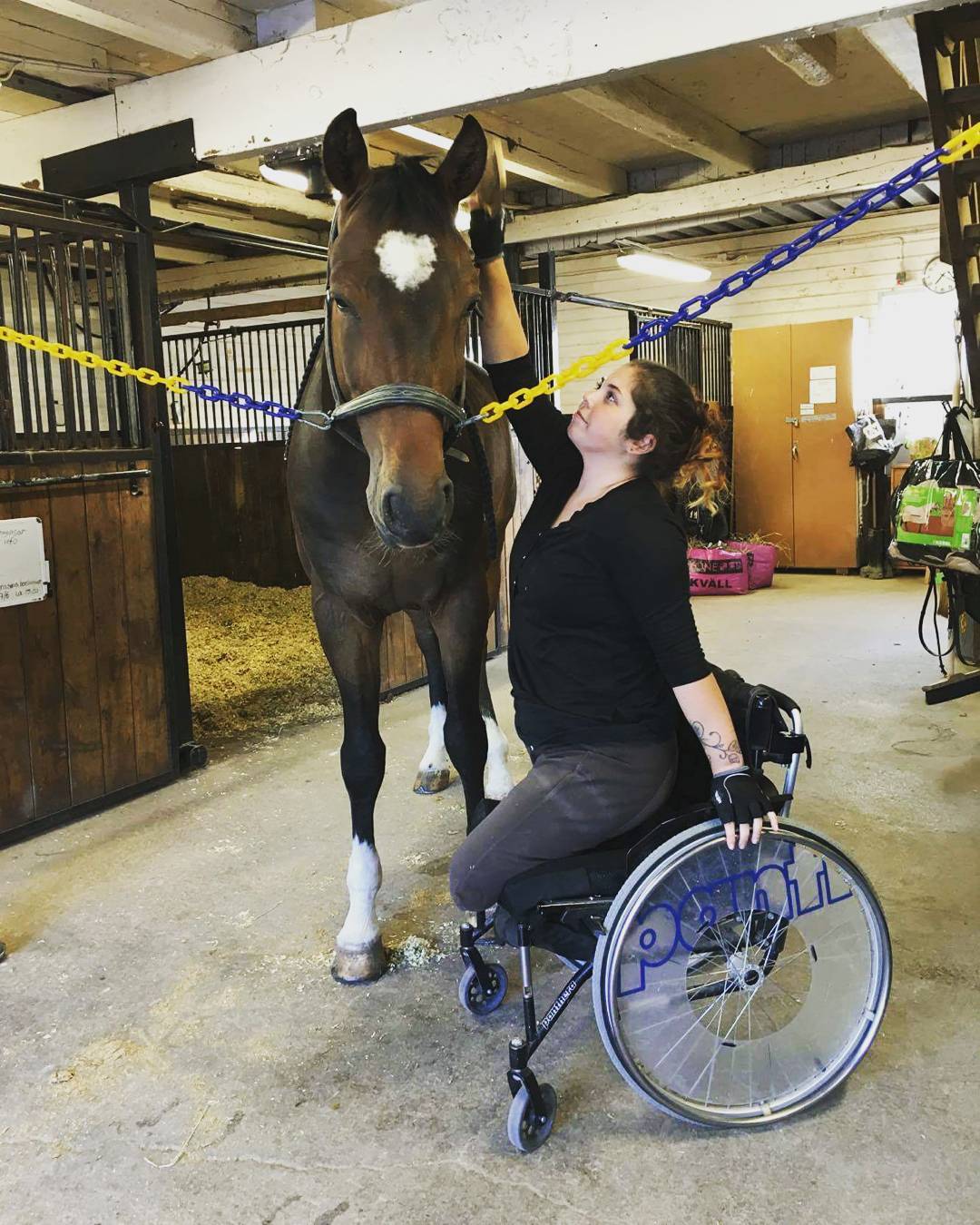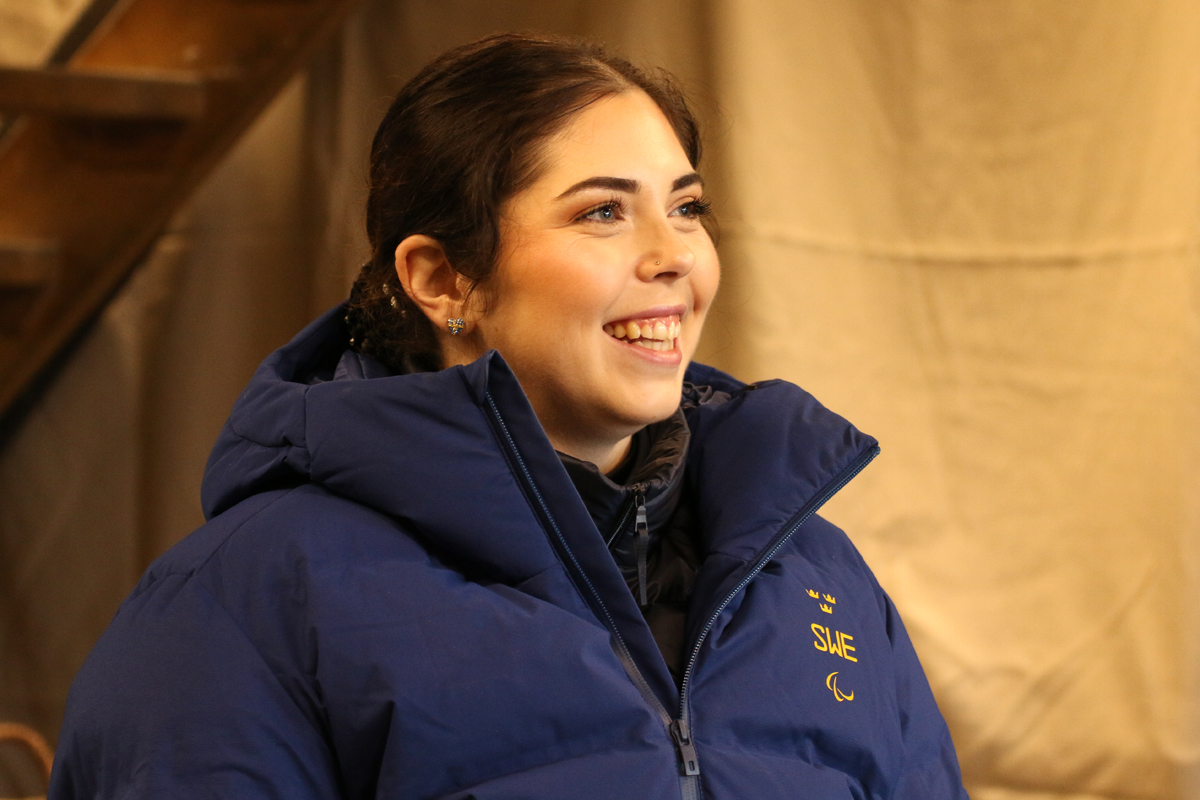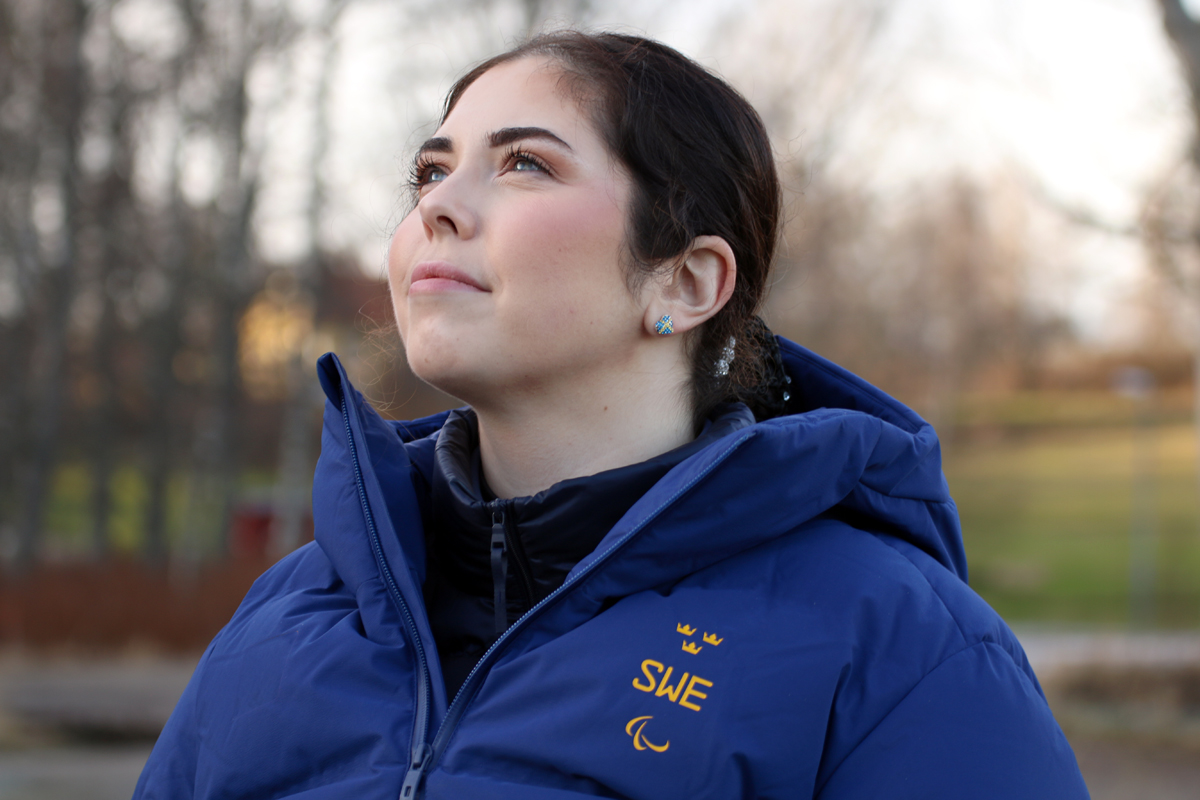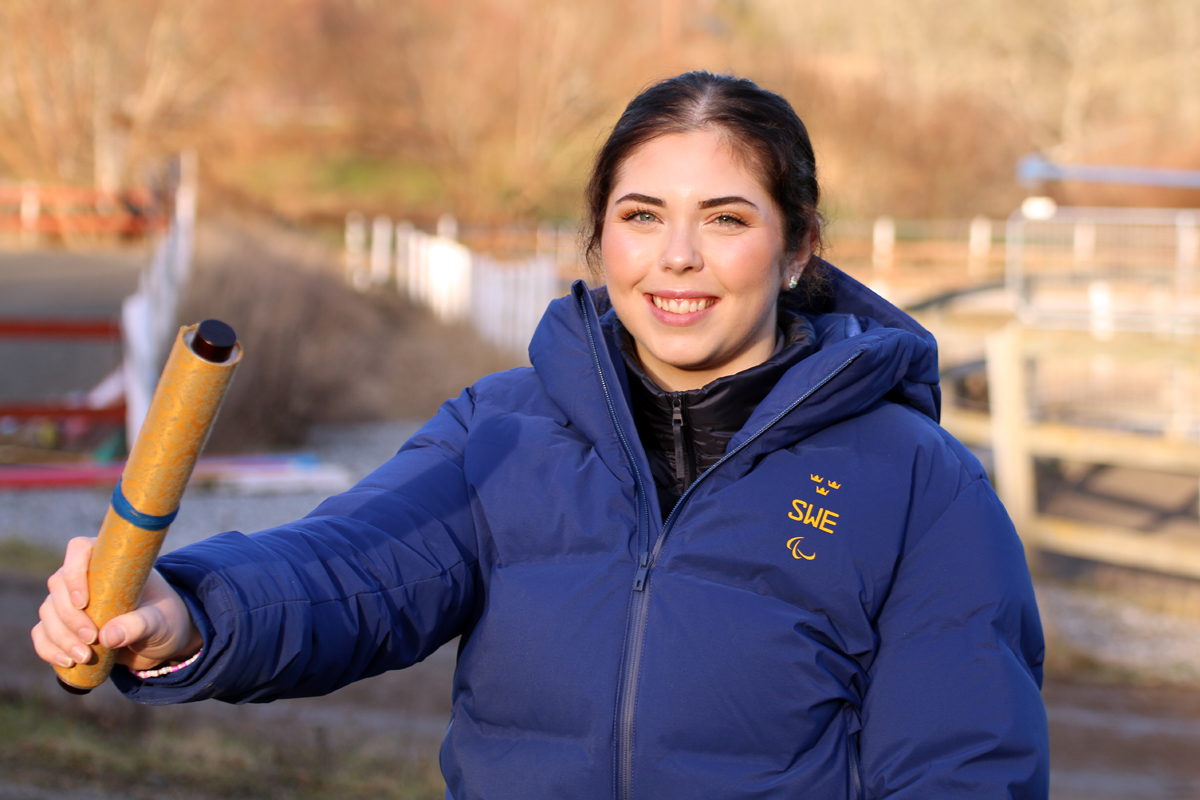

© JADA

Hard work brings people success, but success means different things to different people. That is what I learnt through sport.
To me, ‘success’ means several things. Winning a medal in a dressage competition is one kind of success. However, there is an even greater and more meaningful kind of success for me. It is that moment when I feel my horse and I have overcome something together. It is when, after having continuously communicated with each other daily, we feel the two hearts connected in spirit and an understanding of one another. Gathering up my courage and conquering my fears to surmount something are also a huge and significant kind of success for me. I also learnt through sport that no matter how much hard effort may be required to head toward a goal, that effort will not feel gruelling if it is being made for something that you truly love.
Equestrian events are unlike other sport because we have a horse as our partner, and we compete together. The horse must completely trust the rider. Building a strong partnership with a horse does not happen overnight. Daily communication between the horse and the rider is indispensable for developing mutual trust and a full understanding of each other.
A lot of hard work needs to be carried out every day at the stable, but, to me, it involves more joy than toil. Cleaning the stall, feeding and brushing the horses, taking their temperature and managing their health are just some of the daily routines, and there is always something more that needs to be done. I spend at least three hours every day just on work in the stable caring for the horses. Then, I take my horse to a pasture so that it can run and interact with other horses. There is also the repeated training. Equestrian events are something that you could never take part in unless you have a love of horses.
I always do my best for me and my horse; that’s what I find important. Every single day up to the competition is a series of training and taking care of my horses. Is my horse feeling well, safe and relaxed? Does my horse trust me completely? When all the different pieces of the puzzle fit together perfectly, I feel a sense of accomplishment. It is as if my horse and I are dancing together. Even if I should win a competition, it would not feel like ‘success’ to me if any single piece of the puzzle was missing.


© Felicia Grimmenhag
I was involved in a serious accident, lost both legs and nearly lost my life. Everyone said that it would take years before I would be able to go back to school. However, I was already back in school just 10 weeks after the accident. It was like that for horseback riding too. I told people that I wanted to ride a horse and become a Paralympian, and they all gave me a dubious look. To be honest, it made me angry when people looked at me like that or said something negative to me. I wanted to try something first and decide for myself whether or not I was capable of doing something.
When I was still in hospital, I watched a video of Angelika Trabert riding. She is a German para equestrian athlete. Like me, Angelika does not have legs. Seeing her on a horse and competing in a major equestrian event was truly inspiring, and it gave me the hope that I, too, would be able to ride someday. Seeing her gave me a goal to move toward, and I knew the path that I should follow.
I went to observe a Swedish para equestrian team, and I remember how excited and exhilarated I felt. Their skills and the horses were incredible and beautiful. I could see how they were riding, and I realized that I needed more physical strength if I was going to ride like them. Then, I thought, “Maybe I can do this, too”. I felt even more driven to try it, and so I did.
If possible, I would like to become someone who can inspire others like I was inspired by Angelika. Not just people with impairments who ride horses, I want to have an impact on others as well. I want people to understand that anything is possible, and there are no limits to a person’s potential. I want people to see that when I am on a horse.
Another thing that is important to me is something my parents always used to say to me ever since I was little. They used to ask me, “So, how are you going to solve this?” This remains a key phrase for me. It is my motto, and I have been growing with those words of my parents in my mind at all times. If something does not go well, the first thing I do is to ask myself, “So, how are you going to solve this?” By doing this, I feel I can take responsibility for myself. It also enables me to keep my focus on the possibilities instead of on failure.

© JADA
The year 2017 was a stimulating one for me. I got my horse, Tarot E, I started entering international competitions, and I was in the final of the para dressage in the FEI European Championships in Gothenburg, Sweden. Everything happened so quickly – it was like I was on a lift. I was unknown before then, but I think I attracted a lot of attention because I was competing in a European Championships being held in my own country. I received media coverage, and I also got a chance to speak in front of many people. That also led to getting a sponsor. It really expanded my possibilities.
Now, I run my own company as well as give talks at various places. I speak about things like how I was able to pull myself up and rebound from my nearly fatal accident, how I became a para equestrian, how I motivate myself and overcome difficult times, and what people can do to find their own goal.
As one way to stretch the envelope, I compete in regular dressage events as well. A programme that is not particularly difficult for people without impairments can be very difficult for people like me. However, when I complete such programmes, I can show everyone that anything can be done by people with impairments. It improves my skills and makes me even more confident.
To begin with, I get the sense that there is no high fence in equestrian. In competitions, para riders and non-impaired riders interact with each other and ride in the same field. The same can be said between men and women, who perform the same programmes. I think this is really wonderful and also provides possibilities to a large number of people.
I am enrolled in the Elitidrottsskolan (the School for Elite Athletes), organized by the Swedish Paralympic Committee, as a member of the Class of 2021. The objective of this three-year programme of the school is to have para athletes’ study with other athletes of various sport disciplines and enable them to earn a living by becoming independent para athletes.
Students meet once every few months on a weekend and study such things as training plans, sport psychology, diet and nutrition, presentation skills, dealing with the media and sponsors, anti-doping, and sport ethics. In other words, the programme provides the multiple perspectives as performing athletes. It is also valuable to me in that it gives me an opportunity to deepen my relationship with other athletes of my age as well as exchange information.
Para sport is still at the stage of getting popularity in Sweden. I would like to raise awareness of para sport here, so I try to be proactive about accepting requests for media coverage. Para athletes have overcome major difficulties, and many have very interesting stories to tell. We are able to show that a person can achieve some amazing things. I would like to continue doing what I can to help make para sport more popular.


© JADA
For me, sport was a tool for making a comeback from my accident. Riding a horse makes it possible to maintain a sound state of mind, both as a rider and as a person. Sport also fosters self-confidence. That is why I want many people to become truly healthy by engaging in sport. That is my biggest expectation for the future of sport.
People with impairments will be able to find their own possibilities by going outdoors more and participating in physical activities. Individually, they will become very confident in communities. What is more, the sight of para athletes will have an impact on many people. It will show that every kind of possibility is open to people with impairments. Even if one does not actually engage in sport, watching para athletes compete can inspire them in some way or other. When people are inspired, and they go outdoors to play or watch sport, it will prevent them from becoming isolated and feeling lonely. I hope that everyone will develop some kind of relationship with sport and become happy.
As for myself, I want to become a person who can lead the world of sport and society. I want to inspire para athletes so that they will focus on sport even more proactively with courage. I also want many people to get to know about para equestrian sport, and I want to share my experience on how it has brought joy to my life and enhanced the quality of my life. It is truly wonderful to be able to use my knowledge to help other people.
As an athlete, I want to take part in the Paralympics, and I would like to keep on finding my next goal and working toward it. I will continue participating in equestrian events for non-impaired riders and hope to mark records that are better than now. Above all, I want to spend my life as being an equestrian rider. If you are lucky, equestrian is something that you can engage in for your whole life. That sounds like fun, yes?


© JADA
After I lost both legs in the traffic accident, many people made decisions on what I could or could not do without even asking me. As far as I was concerned, that was absolute nonsense.
When I was a child, my biggest ideal was to be like Pippi Longstocking. Even though she was a child, Pippi was independent and courageous. She tried to accomplish things on her own. I always saw a bit of myself in her. That was why, even after the accident, I tried to be like Pippi and proactively challenged doing even the smallest of things on my own to see if I could do it. At the stable, in the beginning, I wanted to challenge myself by doing it all by myself, but I sought for help by others where needed.
I do not want to become used to depending on other people. I want to be independent and able to do anything on my own. When all is said and done, it is that a person cannot and should not tell somebody else what that person is capable or incapable of doing.
People will become even more self-confident if they keep on setting a higher ceiling for themselves and do their best to go above it. This is true in life as well. I acquired a strong will and determination through sport.
Because I almost lost my life in an accident, I came to feel great gratitude toward life and toward even the smallest of things in life. I was able to grasp many possibilities because I was alive. What is more, I am now able to compete as a top-level para athlete, and my presence is inspiring others. I see and understand life as being something very meaningful. I have priorities that differ from before.
It seems that there are many people who feel sorry for people with impairments. However, there is actually much joy in our lives. Even though I have an impairment, I can do whatever I want, and I am not bothered at all by inconsequential things. In fact, I am enjoying my life! That is the message that I want to relay to a lot of people.


In 2011, she lost both legs at age 17 in a traffic accident during her summer break. While in hospital, she was greatly inspired when she saw the performance of Angelika Trabert, a para equestrian athlete. Only 10 weeks after the accident, she resumed horseback riding, which she used to enjoy as a young child.
In 2014, Felicia started competing in earnest as a para equestrian athlete. In 2017, she competed in the final of the FEI European Championship held in Gothenburg, Sweden.